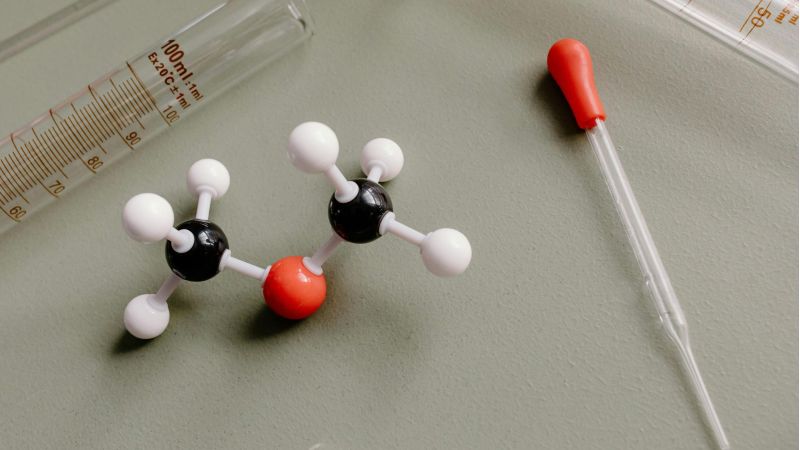
How to Increase NAD+ Levels Naturally
While its name may be complex, its importance to human health is crystal clear.
NAD+ (nicotinamide adenine dinucleotide) is one of the most important molecules in your body, present in every living cell. This remarkable compound stands at the center of cellular health, driving the fundamental processes that keep you alive and thriving.
Unfortunately, our NAD+ levels follow a predictable pattern – they steadily decline as we get older. This decline isn’t just a number on a chart; it’s one of the key reasons our bodies show signs of aging.
When NAD+ drops, it’s like having fewer batteries to power our cellular devices, leading to slower repairs and decreased efficiency throughout the body.
There is, however, a silver lining: science has revealed several natural ways to maintain healthy NAD+ levels.
Understanding and supporting your body’s NAD+ production can help your cells stay energized and resilient – essentially giving them the tools they need to function at their best.
In this article, we discuss…
- The indispensable role NAD+ plays in supporting health and longevity
- Factors beyond aging that contribute to the decline in NAD+ levels
- Natural strategies to optimize your NAD+ levels
- The single most effective way to increase NAD+ alongside a healthy diet, exercise, and proper nutrition

Understanding the Importance of NAD+
NAD+ is a fundamental molecule present in all living cells that serve as a critical link in cellular metabolism. This coenzyme plays a dual role: it facilitates the conversion of nutrients into cellular energy and acts as an essential signaling molecule in various biological processes1.
At the cellular level, NAD+ is integral to energy production within mitochondria2, where it helps convert carbohydrates, fats, and proteins into adenosine triphosphate (ATP) – the universal energy currency of cells.
Beyond energy metabolism, NAD+ is fundamental for maintaining genomic stability through DNA repair mechanisms3 and regulating inflammatory responses.
The significance of NAD+ becomes particularly apparent as its levels naturally decline with age. This decrease correlates with several physiological changes: reduced energy production, diminished cellular repair capacity, and altered metabolic function.
Research has linked insufficient NAD+ levels to various age-related conditions4, including metabolic disorders, neurodegenerative diseases, and compromised immune function5.
The cellular consequences of NAD+ decline manifest in observable effects on health and vitality. When NAD+ levels are adequate, cells maintain optimal energy production and repair capabilities.
Conversely, decreased NAD+ availability can lead to reduced metabolic efficiency6 and compromised cellular maintenance, potentially accelerating age-related cellular deterioration.
To put it concisely, having optimized NAD+ levels can support anti-aging efforts, reduce inflammation, and sustain energy levels throughout life.
The Causes of NAD+ Decline

Aging is one of the biggest factors behind the decline in NAD levels7, resulting from a series of interconnected biological mechanisms
For instance, DNA damage triggers enzymes like PARPs to repair cells8, consuming NAD+ in the process. Additionally, age-related inflammation (inflammaging) activates NAD-depleting enzymes like CD389, which break down NAD+ during immune responses.
Mitochondrial dysfunction also worsens with age10, demanding more NAD+ to maintain energy production. Simultaneously, the efficiency of NAD+ synthesis declines as key enzymes, such as NAMPT, become less effective11.
Furthermore, oxidative stress and the accumulation of senescent cells12, which consume NAD+ and drive chronic inflammation, exacerbate this decline. Reduced NAD+ availability impairs the function of sirtuins, proteins vital for aging and metabolic regulation, creating a feedback loop that accelerates NAD+ depletion.
All these factors contribute to the age-related decline in NAD+ levels, impacting cellular health and energy production.
Aside from aging, excessive exposure to UV rays can also damage cells and speed up NAD+ depletion13. UV radiation triggers oxidative stress, which not only reduces NAD+ levels but also weakens the body’s ability to repair itself.
Drinking alcohol can also interfere with the body’s ability to maintain healthy NAD+ levels14. This is because the liver uses up a large amount of NAD+ to detoxify alcohol, which leaves less of it for other important functions around the body.
Chronic inflammation, whether from conditions like arthritis or autoimmune disorders, also accelerates NAD+ decline15. Inflammation causes oxidative stress, which depletes NAD+ and compromises its role in repairing damaged cells.
Natural Ways to Boost NAD Levels

If you’re feeling fatigued, recovering more slowly, or noticing other signs of NAD+ deficiency, you may be looking for ways to increase NAD levels naturally. Combining lifestyle adjustments with evidence-based approaches that support NAD+ production will help you increase your energy, enhance recovery, and improve your overall health.
Dietary Approaches
Your food choices play a role in maintaining healthy NAD levels.
Eating foods rich in NAD+ precursors16, like vitamin B3 (niacin), tryptophan, and fermented foods, can help support NAD+ production. These foods help by providing your body with the essential building blocks to synthesize NAD+.
Niacin, found in foods like turkey, chicken, and fish, can offer a helping hand in NAD+ synthesis. Tryptophan, present in eggs, nuts, whole grains, cow’s milk, and dairy, is another nutrient that can be converted into niacin, further increasing your levels of NAD.
Fermented foods like kimchi, sauerkraut, and kombucha promote gut health, which can indirectly support NAD+ production. Fermented foods contain very small amounts of NAD+ as a byproduct of the fermentation process.
Moreover, eating healthy fats from sources like avocados, olive oil, and fatty fish provides the nutrients needed to support cellular function and energy production, helping to support your NAD+ levels naturally.
Exercise and Physical Activity
Regular exercise protects against the decline in skeletal muscle NAD content associated with aging17.
Physical activity not only helps maintain NAD+ but contributes to regulating oxidative stress18, which is vital for maintaining energy levels and overall cellular health.
Aerobic exercise, such as running, cycling, or swimming, increases oxygen flow to your cells, promoting mitochondrial function and reversing age‐dependent decline in NAD+ salvage capacity19.
Interval training, where you alternate between high-intensity bursts and low-intensity recovery, has also been shown to increase the levels of NAD by enhancing metabolic processes efficiency and stimulating sirtuins—proteins that depend on NAD+ for cellular health20.
Lifestyle Changes
Lifestyle changes, such as calorie restriction, intermittent fasting, and managing stress, can also help regulate NAD levels.21
Calorie restriction and intermittent fasting promote a process called autophagy22, which helps the body clear out damaged cells and regenerate new ones, helping stimulate NAD+ production and supporting cellular repair.
Additionally, adopting a ketogenic diet, which is high in healthy fats and low in carbohydrates, can help improve metabolic efficiency, further promoting NAD+ synthesis.
Stress management techniques such as meditation, yoga, and deep breathing also help reduce oxidative stress23, which can otherwise deplete NAD+ levels.
Finally, getting quality sleep can help maintain healthy NAD+ levels. During deep sleep, the body undergoes restorative processes that require NAD+ to function optimally24, including the activation of sirtuins.
Poor sleep or insufficient rest disrupts these processes, leading to increased oxidative stress and inflammation, which deplete NAD+ levels over time.
Restful sleep also helps regulate the circadian rhythm, which influences NAD+ metabolism25. Maintaining a regular sleep schedule is therefore important for sustaining healthy NAD+ levels.
Heat Exposure
When the body is exposed to heat, it activates a response known as heat shock, which triggers the production of heat shock proteins that assist in repairing damaged cells and maintaining cellular health. This process induces an increase26 in the NAD+/NADH ratio.
Regular use of saunas or hot baths has also been linked to increased longevity, improved circulation, and better mitochondrial function, all of which are important for maintaining healthy NAD+ levels.
Additionally, heat promotes better circulation by causing blood vessels to dilate, improving the delivery of oxygen and nutrients, including NAD+ precursors, to cells. This enhanced blood flow supports cellular energy and repair.
Regular sauna use has been shown to reduce inflammation, a major factor in aging, which helps prevent the depletion of NAD+ by reducing the activity of enzymes that break it down.
Together, these factors—improved circulation, mitochondrial function, reduced inflammation, and enhanced cellular repair—contribute to sustaining healthy NAD+ levels, supporting longevity and cellular health.
Supplements to Increase NAD Levels

To effectively boost NAD levels naturally, evidence-based supplementation should be paired with the key lifestyle changes outlined above. Research shows that targeted NAD supplementation, when paired with healthy daily habits, can address low levels of NAD and support your overall metabolic health.
Oral NAD+ supplements are one of the most popular and accessible ways to boost NAD+ levels. These often come in the form of sublingual NAD powder or capsules that contain NAD precursors, which are clinically proven to increase intracellular NAD levels.
NAD precursors include D-Ribose and Nicotinamide, which work synergistically to raise NAD levels.
Nicotinamide, a form of vitamin B3, serves as a direct precursor to NAD+ through the salvage pathway27. It is converted to nicotinamide mononucleotide (NMN) by the enzyme nicotinamide phosphoribosyltransferase (NAMPT), and then to NAD+ by nicotinamide mononucleotide adenylyltransferases (NMNATs)28.
D-Ribose enhances this process by stimulating NADPH production via the pentose phosphate pathway. NADPH is crucial for converting oxidized NAD+ back to its reduced form, NADH, thus maintaining the NAD+ pool. D-ribose may also improve the efficiency of nicotinamide utilization by providing the ribose sugar component needed for NAD+ synthesis.
Some supplements combine various NAD+ precursors like nicotinamide riboside (NR) with other compounds like resveratrol or pterostilbene, which may improve NAD+ metabolism or provide synergistic benefits.
Our Vitality ↑® NAD+ Booster is a clinically validated formulation consisting of NAD precursor, Creatine monohydrate, D-Ribose and Nicotinamide, four key compounds that work together to help maintain healthy levels of NAD+. While the effectiveness of NAD+ supplementation continues to be studied, each component in our formula has been individually researched for its role in cellular energy processes.
Advanced NAD Therapies

Advanced therapies for increasing NAD+ levels in the body include intravenous (IV) infusion and subcutaneous injection. Each method has distinct characteristics that influence its effectiveness and application.
NAD+ IV therapy delivers the compound directly into the bloodstream, bypassing the digestive system. This enables rapid uptake and immediate availability throughout the body’s tissues. Healthcare providers typically recommend this approach for addressing acute conditions like severe fatigue or for intensive therapeutic protocols.
Subcutaneous administration involves injecting NAD+ into the layer of tissue just beneath the skin. This creates a depot effect, where the compound is gradually released into circulation over an extended period.
These therapies require medical supervision and careful consideration of cost-benefit factors, including the price tag and potential side effects of NAD therapy. Medical screening and ongoing monitoring are essential, as these therapies may not be suitable for all individuals or medical conditions.
How to Monitor Your NAD Levels

Monitoring your NAD+ levels is important for understanding how well your body is maintaining energy and supporting cellular health.
The Intracellular NAD® Test measures NAD+ concentrations directly within cells, providing a precise assessment of your cellular NAD+ status. This measurement helps evaluate how lifestyle factors, dietary changes, and supplementation influence your cellular metabolism.
By establishing your baseline NAD+ levels before beginning any intervention, you can objectively track changes over time. Our research indicates that intracellular NAD+ concentrations of 40 micromoles (µM) or higher are associated with optimal cellular function. Regular monitoring enables evidence-based adjustments to supplementation protocols when needed.
Maintaining adequate NAD+ levels supports fundamental biological processes:
- Mitochondrial energy production
- Cellular stress response
- DNA maintenance and repair
- Metabolic regulation
While individual responses vary, optimizing NAD+ levels typically promotes cellular resilience and helps maintain metabolic function as you age. Regular testing provides actionable data to guide personalized interventions aimed at supporting cellular health.
Test Your NAD Levels with Jinfiniti

Is your NAD level where it should be?
Jinfiniti’s Intracellular NAD Test gives you an accurate measure of your NAD+ levels and shows how they impact your health.
Testing your NAD levels both before and after supplementation helps you find the right dosage for your body, as what works for one person may not be effective or could even be harmful to someone else.
With data from your NAD test, you can fine-tune your supplementation to get the maximum benefit and avoid over- or under-supplementing.
Jinfiniti’s NAD test gives you more than just numbers—it shows you what your body needs, helping you make better choices and optimize your health for improved vitality and longevity.
Referenced Sources:
- https://www.sciencedirect.com/science/article/abs/pii/B9780123786302001031 ↩︎
- https://pmc.ncbi.nlm.nih.gov/articles/PMC3683958/ ↩︎
- https://www.nature.com/articles/s41556-023-01280-z ↩︎
- https://www.sciencedirect.com/science/article/pii/S0006291X24001256 ↩︎
- https://www.nature.com/articles/s41392-020-00354-w ↩︎
- https://pmc.ncbi.nlm.nih.gov/articles/PMC7973386/ ↩︎
- https://www.sciencedirect.com/science/article/abs/pii/S1568163718300060 ↩︎
- https://www.ncbi.nlm.nih.gov/pmc/articles/PMC6740200/ ↩︎
- https://www.ncbi.nlm.nih.gov/pmc/articles/PMC8752031/ ↩︎
- https://pmc.ncbi.nlm.nih.gov/articles/PMC5748716/ ↩︎
- https://pmc.ncbi.nlm.nih.gov/articles/PMC7442590/ ↩︎
- https://pmc.ncbi.nlm.nih.gov/articles/PMC10776128/ ↩︎
- https://pmc.ncbi.nlm.nih.gov/articles/PMC10239563/ ↩︎
- https://pubmed.ncbi.nlm.nih.gov/26896648/ ↩︎
- https://www.nature.com/articles/s42255-020-00305-3 ↩︎
- https://pmc.ncbi.nlm.nih.gov/articles/PMC10240123/ ↩︎
- https://www.sciencedirect.com/science/article/pii/S053155652300030X ↩︎
- https://www.ncbi.nlm.nih.gov/pmc/articles/PMC5908316/ ↩︎
- https://pmc.ncbi.nlm.nih.gov/articles/PMC6577427/ ↩︎
- https://pmc.ncbi.nlm.nih.gov/articles/PMC6600260/ ↩︎
- https://pmc.ncbi.nlm.nih.gov/articles/PMC7752291/ ↩︎
- https://pubmed.ncbi.nlm.nih.gov/21364612/ ↩︎
- https://www.ncbi.nlm.nih.gov/pmc/articles/PMC10132211/ ↩︎
- https://www.nmn.com/news/nad-and-the-sleep-wake-cycle ↩︎
- https://pmc.ncbi.nlm.nih.gov/articles/PMC10665902/ ↩︎
- https://www.researchgate.net/figure/HS-induces-an-increase-in-the-NAD-NADH-ratio-A-NAD-and-B-NADH-concentrations-were_fig7_235372219# ↩︎
- https://pmc.ncbi.nlm.nih.gov/articles/PMC9183138/ ↩︎
- https://pmc.ncbi.nlm.nih.gov/articles/PMC9316858/ ↩︎
Read More














